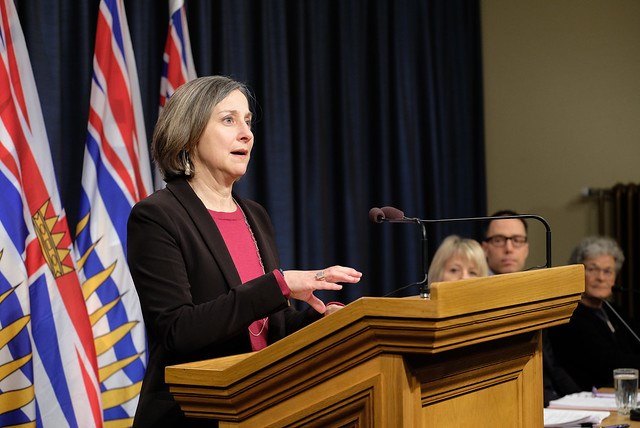This week marks the one-year anniversary of B.C.’s experiment with drug decriminalization and it is fair to say things have not gone according to plan.
But how to improve things has proven to be an exercise in frustration as politicians, health officials and judges cannot agree on a preferred approach.
Last week B.C. Chief Coroner Lisa Lapointe, at her final news conference before taking retirement, said politicians “need to be courageous” when it comes to setting policies. To her, a widespread expansion of non-prescribed safe supply of drugs is a top priority.
The problem with that approach, however, is that no politician of any stripe will advocate for that position. And the reason for this being a no-go zone is that it is likely wildly out of step with public opinion.
Lapointe’s news conference was on the same day her office released statistics that showed at least 2,511 British Columbians died from illicit drug overdoses in 2023, the highest yearly total ever recorded.
But she was adamant that decriminalization was not the reason for the record total.
“Decriminalization is not responsible for those deaths,” she said. “Illicit fentanyl is responsible for those deaths.”
The death statistics actually back up her assertion.
In 2022, the year before the decriminalization experiment began, 2,383 deaths were recorded. Since the public health emergency was declared in 2016, 11,283 deaths were recorded before decriminalization took effect.
So decriminalization has clearly not dramatically made a bad situation worse. Yet the problems now associated with it are likely cutting into public support for it.
Some of the so-called “unintended consequences” are undermining support. Chief among them may be the use of illicit drugs in public places.
Health Canada put a number of safeguards in place when it allowed the program to launch in January, 2023. The use of drugs was banned on school property, childcare facilities and airports. A few months later, playgrounds, skate parks, splash parks and wading pools were added to the exemption list.
Yet a strong impression, based on anecdotal evidence, was building that open drug use was indeed happening in public places deemed unacceptable. The NDP government tried to further tighten the rules through legislation, but the B.C. Supreme Court chief justice said the law would “cause irreparable harm” and in December granted a three-month injunction against its enactment.
The government is appealing the injunction ruling and it had better hope it is successful. Otherwise, any public support for decriminalization may further erode.
Still, it is hard to point to any model that is working. Oregon is backing away from decriminalization in the cities of Portland and Eugene.
Alberta has rejected decriminalization and harm reduction and is instead using an approach that emphasizes treatment (some of it involuntary) and recovery. Still, the overdose deaths recorded in that province remain very high.
“The rate of death in Alberta for the first six months of 2023 was significant,” Lapointe said. “The increase in the rate of death was double that of B.C..”
The different outcomes show one single approach is unlikely to be effective, she said.
“We can’t dig in and say only this will work or only this will work. If we really want to make a difference we have to collaborate and we need a range of responses,” Lapointe said.
So far, no one has found the magic solution.
In the meantime, about seven people die every day in B.C. from an illicit drug overdose. I have to wonder whether Lapointe’s successor as B.C.’s chief coroner is going to have much success dealing with a crisis that will soon be almost a decade old.
Keith Baldrey is chief political reporter for Global BC.




